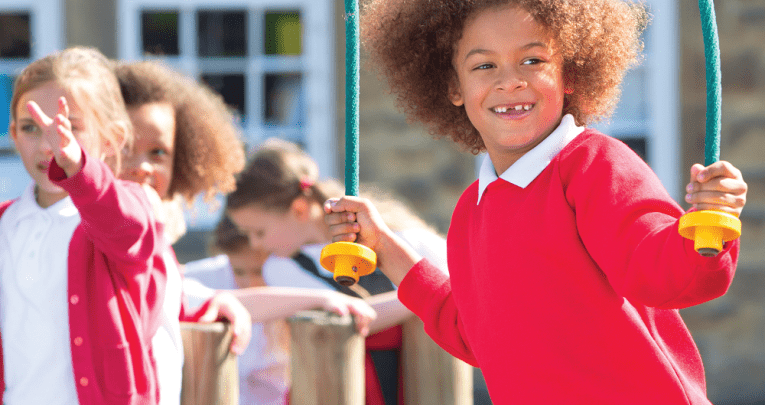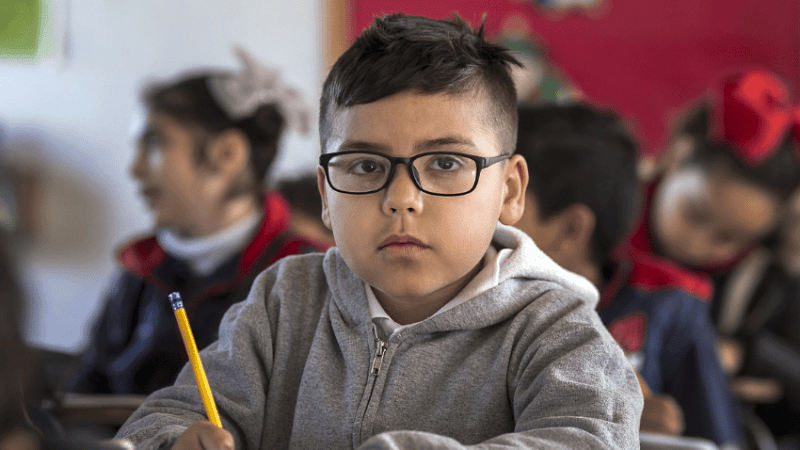Make Breaktime Something to Look Forward to for Children with SEND

"The school playground is a curriculum resource that has the potential to build a bridge to inclusion"

- by Teachwire
- Classroom expertise and free resources for teachers

I have seen it many times: a child ‘acting out’ so that they can avoid the social demands of playtime or lunchtime. I am by no means suggesting that incidents in the classroom always relate to a desire to avoid going outside at break, but it is useful to consider that this may be an option when you are unpicking challenges that a child faces.
The social demands of playtime are huge. The nature of play is that it evolves and the rules often change from one moment to the next. Most children can keep up with these demands, but for a few this is just not possible and can cause distress. As adults we often see playtimes as a chance to give our pupils some free time, to contrast the demands of a busy classroom.
For children with SEND, who crave and thrive on structure and routines, playtime becomes an undesirable part of the school day. Children with Autism Spectrum Disorder (ASD) are also often victims of bullying, and the playground is frequently the setting for this unacceptable behaviour.
In recent years, more students with ASD are being educated in mainstream settings. Between 1997 and 2001 there was a 16% increase of children with ASD attending mainstream schools in the UK.
By 2010, the number had increased to 70% of children in England with ASD attending mainstream schools. When you factor in other types of SEND and consider your own experiences, we all know that high numbers of children with special educational needs are in mainstream settings. I am a big advocate of play and activity. The demands of having to sit and listen in class mean that children need the contrast of an energetic and busy playtime so that their bodies can regulate.
Our bodies have many senses: the classic five of touch, taste, auditory, visual and sight, plus movement or ‘vestibular’ senses (balance and spatial orientation) and proprioception (body awareness). Our bodies take in sensory information all the time and it helps to alert or calm us. Playtime is the ideal time to alert the body through movement so that children feel well regulated, or just right, and ready to go back to class.
Physical activity is a crucial part of everyone’s day. NHS guidelines state that children between the ages of 5-18 need to be getting at least 60 minutes of physical activity each day. Playtime activities typically fall under the ‘moderate’ exercise category. The NHS also suggests that on three days out of every week, activities should also include exercises for strong muscles (push-ups or monkey bars) and strong bones (running and jumping).
Some children with SEND have motor development difficulties including balance, postural stability, gait, joint flexibility, and speed of movement. Playtime is an ideal time to provide activities to allow children to work on these skills and build strength.
To support better playtimes, it is important that adults who know the children are present. Having ‘zones’ so that children have a choice between intense physical activity and quieter games such as coits or hula hooping is also essential. Don’t forget to ask the children to suggest games that they like.
At my school we made playtime game cards for all our meal supervisors’ lanyards so if anyone was short of an idea, they had eight games they could look at and choose from. Buddy systems or playground champions can also be a useful way to provide responsibility to children who can in turn support others who find it hard to engage.
We also need to teach children strategies that will help them get ready for the next task of the day after being involved in moderate or intense physical activity, so you don’t end up with 30 hot restless children back in your lesson. A drink of water, a stretch or some deep breathing are all things that can be done easily before the children are expected to engage in learning.
The school playground is a curriculum resource that has the potential to build a bridge to inclusion for children who experience difficulty developing skills in social interaction, verbal and nonverbal communication and play. Playtimes offer a great chance to extend classroom learning, but only if all students have the skills and confidence to participate.
How to support natural inclusion at playtime
- Specifically teach the skills needed to interact at playtime. This could be accommodated for in children’s individual target setting and include things such as learning how to initiate a conversation with a peer, knowing the rules of favoured playground games and being able to ask for help when needed.
- Include the specific skills required to play popular games with peers, such as throwing and catching, waiting for your turn and accepting when you lose, in individual educational plans.
- Seek opportunities to prepare peers to include children with SEND in their playground activities via buddy or mentoring programmes. Joy Beaney’s book Creating Autism Champions offers assemblies and lesson plan ideas for students in KS1 and 2.
- Plan in advance to provide quiet time activities for children with SEND who may need solitude as well as social contact.
- Ensure that teaching assistants, meal supervisors and teachers have shared goals when it comes to student independence so that adults do not get in the way of friendship or interaction opportunities with peers.
Kate Bradley is head of autism and inclusion at an inner London primary school. She is an author, trainer and researcher in the field of SEND. Follow her on Twitter at @kate_brads.










